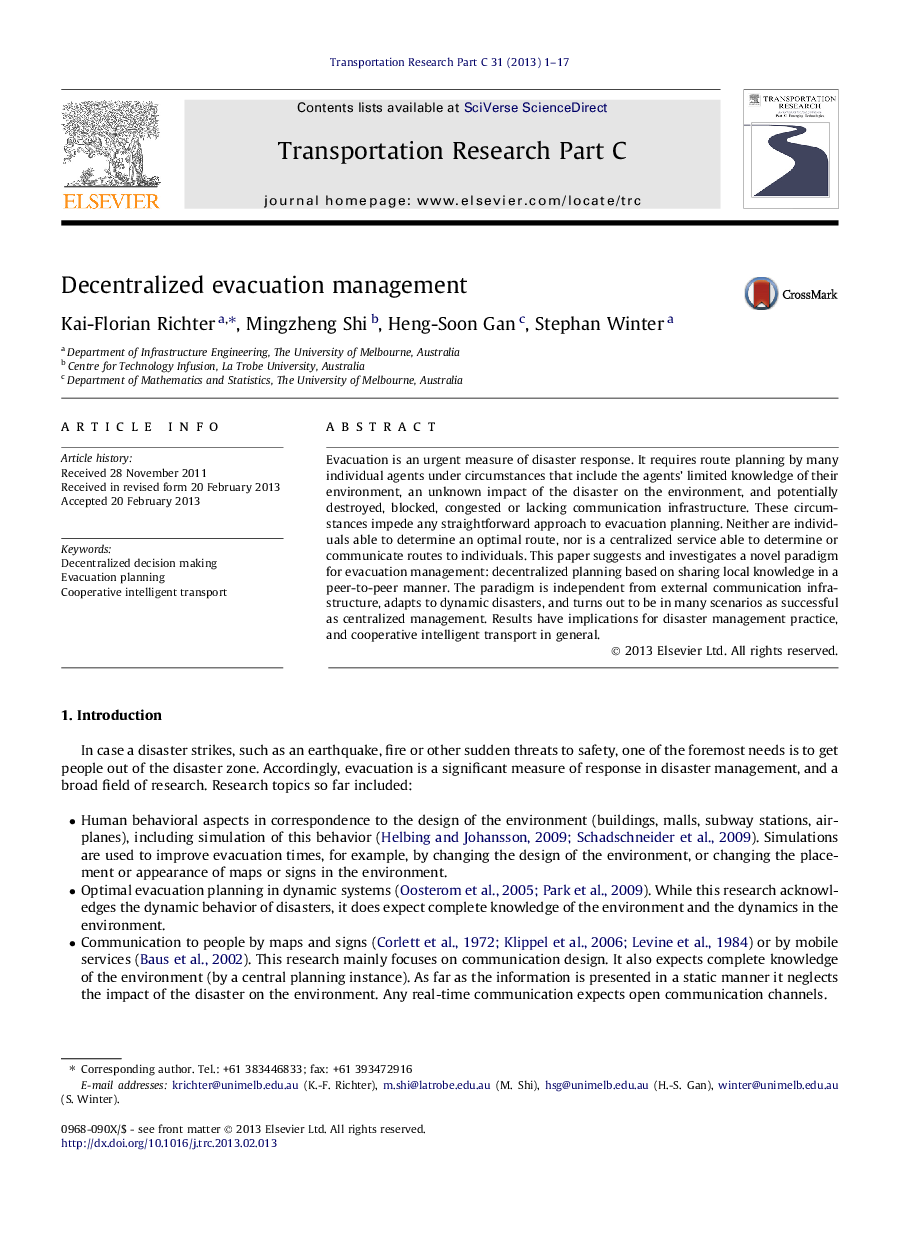| Article ID | Journal | Published Year | Pages | File Type |
|---|---|---|---|---|
| 525385 | Transportation Research Part C: Emerging Technologies | 2013 | 17 Pages |
Evacuation is an urgent measure of disaster response. It requires route planning by many individual agents under circumstances that include the agents’ limited knowledge of their environment, an unknown impact of the disaster on the environment, and potentially destroyed, blocked, congested or lacking communication infrastructure. These circumstances impede any straightforward approach to evacuation planning. Neither are individuals able to determine an optimal route, nor is a centralized service able to determine or communicate routes to individuals. This paper suggests and investigates a novel paradigm for evacuation management: decentralized planning based on sharing local knowledge in a peer-to-peer manner. The paradigm is independent from external communication infrastructure, adapts to dynamic disasters, and turns out to be in many scenarios as successful as centralized management. Results have implications for disaster management practice, and cooperative intelligent transport in general.
► Collaboration in evacuation is highly beneficial. ► Agents achieve same evacuation performance as global management in many settings. ► Approach is robust to infrastructure failure and independent of specific environment. ► This novel paradigm should be considered in disaster management in the future.
